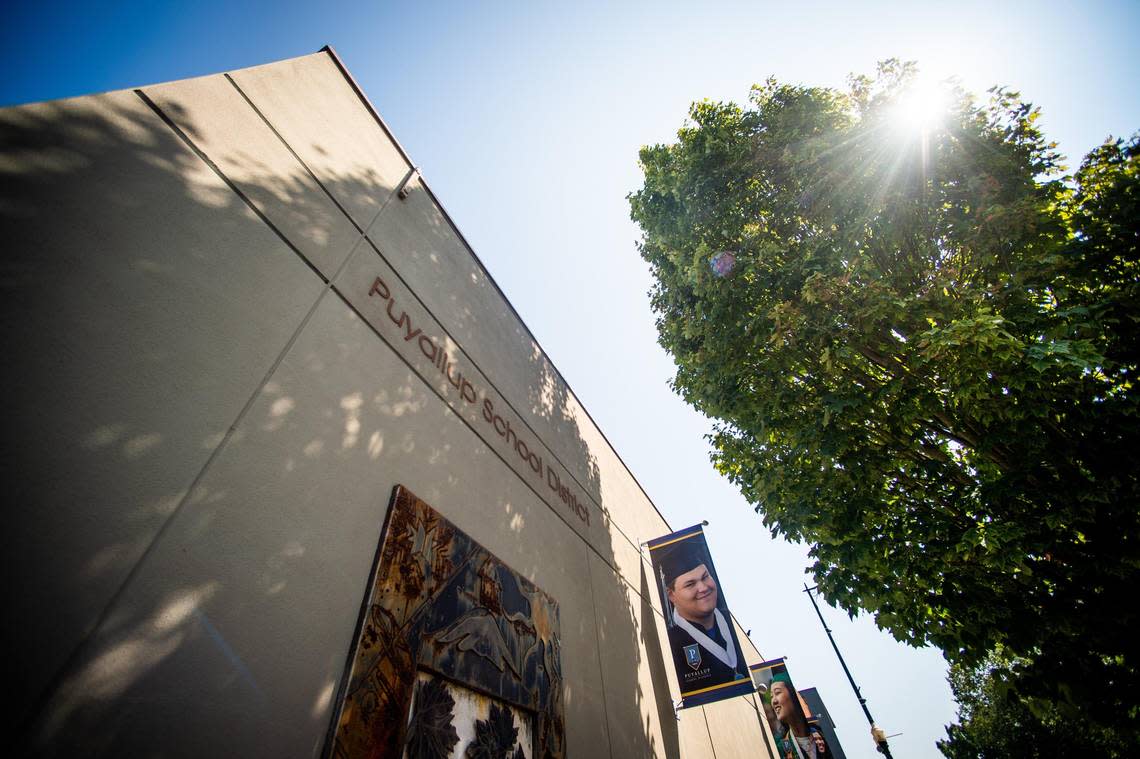Election results: Here’s how Puyallup’s school funding measure is doing, what’s next

Voters are leaning against Puyallup School District’s capital levy as of Tuesday, Nov. 8, according to early election results.
According to the Pierce County Auditor’s Office, 17,094 votes (about 51.7 percent) were against the levy while 16,004 (about 48.4 percent) supported it. School district levies need a simple majority to pass.
The first round of election results came out around 8 p.m. The next wave of election results is scheduled for Wednesday, Nov. 9 at 6 p.m.
School district spokesperson Sarah Gillispie said the early election results for the capital levy show it’s “a close one.” The school district remains “cautiously optimistic and hopeful,” she said.
The capital levy didn’t pass during the special election in February. About 52 percent of 11,833 voters turned down the proposition, The News Tribune reported. The school board unanimously approved putting the levy in front of voters again on the November ballot at a June 21 meeting.
The capital levy would span six years and collect about $125 million total. Property owners would pay an additional 67 to 82 cents per $1,000 of assessed property value per year, The News Tribune reported.
If the capital levy passes, the rate would be $0.82 in 2023, $0.79 in 2024, $0.75 in 2025, $0.72 in 2026, $0.70 in 2027 and $0.67 in 2028, The News Tribune reported. The owner of a $500,000 home would pay $23 more in property taxes beginning in 2023.
Gillispie told The News Tribune in August this capital levy would not fund a new central transportation facility or revamp the current maintenance facility, which is what the February levy would’ve paid for.
The school district conducted a survey after the February special election and received over 900 responses. Over one-third of the respondents wanted the school district to prioritize safety and security, The News Tribune reported.
About 43 percent of this capital levy would go to safety and security upgrades such as monitoring and fire protection systems. About 28 percent would go to technology upgrades, and about 12 percent would go to building improvements.
Asked what would happen if the levy does not pass, Laura Marcoe, assistant superintendent of business services, told The News Tribune in August: “Eventually there are projects that we would have to pay for out of the general fund.”
Gillispie said that if the levy fails the school district would need to reassess its plan to address a backlog of critical repairs and improvements.
“While these preliminary results may seem disappointing at first, we remain optimistically hopeful,” Gillispie said. “We are extremely thankful for voter turnout and grateful for everyone who took part in that.”






